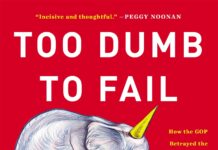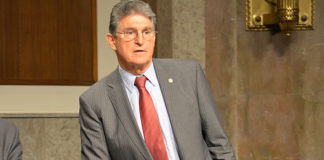At the Venice Film Festival last month, Brendan Fraser stood up from his seat after a screening of “The Whale” — Darren Aronofsky’s new slice of life drama in which the 53-year-old actor plays a gay, grossly overweight teacher desperately trying to reconnect with his estranged teenage daughter — and basked, teary-eyed, in a six-minute standing ovation.
For an actor whose status in the industry has been teetering perilously close to has-been territory, it was an extraordinary moment. Suddenly, the one-time “Mummy” star, who had all but disappeared from the big screen over the past decade (his most noteworthy recent role was a smallish part in 2017 as a prison guard in a handful of episodes of “The Affair”), had become a front runner in this year’s Best Actor race. Even critics, who’d never been especially effusive over Fraser before, were showering him with praise (“An impressive feat,” TheWrap’s own Ben Croll described his performance).
For a brief, fleeting moment, it looked as if Fraser was poised to make the most dramatic Hollywood comeback since “Pulp Fiction” defibrillated John Travolta’s near-dead career.
Poor Brendan, it was nice while it lasted.
Also Read:
Brendan Fraser Sobs During 6-Minute Standing Ovation for ‘The Whale’ During Venice Premiere
A month later, Fraser’s performance — for which he packed himself into mounds of prosthetics to attain a 600-pound-looking girth — is now at the center of casting controversy that threatens to sink, or at least ding, not just his own Oscar chances but Aronofsky’s as well.
“I love Brendan Fraser, but why? Why go there and wear a fat suit to play a [600]-pound queer man?” Daniel Franzese — the self-described “big queer” actor who played heavy-set Damien in 2004’s “Mean Girls” — complained to People magazine, adding that “actors like me and my colleagues [would] jump at” the chance to play the part. Body positivity advocates have been throwing harpoons at “The Whale” as well, although they probably wouldn’t be any happier even if Franzese had been cast instead of Fraser. They claim the film itself, with its unhappily overweight central character, is triggering to people with obesity issues.
We have, of course, seen this movie before, albeit with slightly different, if no less weighty, plot lines. Scarlett Johansson was trashed for playing a character originally conceived as Asian in 2018’s live-action adaptation of “Ghost in the Shell.” Emma Stone took some hits for portraying a native Hawaiian in 2015’s “Aloha.” Eddie Redmayne’s turn as a trans character in 2015’s “The Danish Girl” was so divisive Redmayne himself later declared he should never have taken the part (even though it earned him an Oscar nomination). Jared Leto as a trans character in “Dallas Buyers Club,” Johnny Depp as Tonto in “The Lone Ranger,” Zoe Saldana as Nina Simone in “Nina” — the list of casting transgressions goes on and on.


But Brendan Fraser is in hot water now? For wearing a non-jokey fat suit? Is this how far the pendulum has swung these days?
To be clear, there are good intentions behind many of these casting blow-ups. Hollywood has a long, horrific history of excluding huge swaths of the audience from onscreen representation — and of demonizing or humiliating them when they have been allowed to appear. Nobody can blame gay or trans people, or people of color, for wanting to see more of themselves in movies and TV shows, played by actors who really are gay or trans or people of color. Nobody wants to go back to the bad old days when Mickey Rooney stuffed bucktooth dentures into his mouth to play Mr. Yunioshi, Audrey Hepburn’s always-angry Asian neighbor in “Breakfast at Tiffany’s,” an outrageous stereotype that undoubtably offended a lot of folks even back in 1961.


Lately, though, the argument over who should be allowed to play whom seems to be spiraling into ever-narrowing — and increasingly absurd — concentric circles of ethnicity and identity. Last year, Lin-Manuel Miranda was pushed to apologize because the African-Latinos he cast in “In the Heights” were not sufficiently dark-skinned. Steven Spielberg took some flak in 2021 for the casting of his “West Side Story” reboot — not so much because the white actor he hired to play Tony, Ansel Elgort, was later accused of sexual assault on a 17-year-old (which he denied) but because the actress picked to play Maria, Rachel Zegler, was part Colombian and not fully Puerto Rican (at least Zegler, unlike Natalie Wood, didn’t need to have her song vocals dubbed by Marni Nixon).
And it is no longer just actors who are being tangled up in the new rules of identity politics in Hollywood. Directors are being targeted as well. Even documentary directors. Meg Smaker’s “Jihad Rehab,” a film about Guantanamo detainees, made a huge splash at Sundance earlier this year, wowing critics with its nuanced and humanizing portraits of four accused terrorists. “This is a movie for intelligent people looking to have their preconceived notions challenged,” gushed The Guardian.
But then Smaker, who lived in Yemen for five years where she learned Arabic before spending 16 months shooting her documentary inside a Saudi rehabilitation center, ran into a buzzsaw of criticism from many Muslim and Arab critics. Suddenly, her film was radioactive. Other festivals pulled it from screenings. Even some of the movie’s own backers and producers began removing their names from its credits (including Abigail Disney, granddaughter of Walt Disney’s brother, who at one point had called the doc “freaking brilliant”).


Among Smaker’s supposed transgressions? She’s a white, blond American woman making a movie about Arab men.
Look, it can’t be repeated enough that more equitable representation in Hollywood is a goal toward which everyone should be striving. It’s obviously critically important that no one group be excluded from the conversation, or the screen. But that doesn’t mean straight guys can’t make powerful movies about gay people (like, say, “Brokeback Mountain” or “The Talented Mr. Ripley”) or that films with gay actors portraying gay characters don’t ever misfire (um, “Bros”) or that stories that once upon a time were conceived with straight white characters in mind can’t be reimagined for a more inclusive era (Disney’s new live-action adaptation of “The Little Mermaid”).
Or, for that matter, that a drama about a 600-pound man necessarily has to star a 600-pound actor.
The pendulum seems to be swinging a little bit too much in the direction of crazy town at the moment. But that will surely change in the future. One can only hope that someday, to paraphrase Martin Luther King Jr., filmmakers will be judged not by the color of their skin but by the characters in their content.
Also Read:
‘The Whale’ Film Review: Darren Aronofsky Handles a Heavyset Character With a Heavy Hand








